Now on demand, it’s the perfect time to experience the near flawless horror film “The Black Phone” — delivering a direct line to darkness.
Horror operates best when it acts as a mirror to the society we live in, often presenting fascinating distillations of the challenging, contradictory and ever-changing mores present throughout the decades of American history.
With phenomenal central performances from a talented young cast, and a career-redefining performance from Ethan Hawke, the Jason Blum-produced The Black Phone is an expertly crafted direct line into that American fear; tapping into the nightmares which permeate human psyches, inviting decay into our very own neighbourhoods and backyards.
Opening in 1978 Denver, at a local kids’ baseball game, we are introduced to our main character.
13- year old Finny Blake quickly earns audience sympathy by throwing a losing pitch to opposing teammate Bruce Yamada, affording Bruce the chance to score a game-winning home run. Counteracting this crushing disappointment is the amicability that Bruce displays towards Finny — offering him genuine props by calling Finn’s arm ‘mint’.
The film takes an interesting divergence here where, instead of following Finn and his defeat, we witness Bruce basking whilst bike-riding through town, receiving the type of adoration from schoolgirls that Finn himself can only dream of.
The celebration is soon cut short.
What follows is uncomfortably dark in presentation, giving the viewer a horrifying clue as to what type of nightmare awaits them.
Pivoting back to Finny (played by relative newcomer Mason Thames) and his sister Gwen (Madeleine McGraw, whom sharp eyed viewers might remember as a young Kate Beckinsale in 2018’s Ant-Man and the Wasp), the siblings’ family and school life is depicted with harrowing real-world savagery.
The brutality that Finny and Gwen experience both at home from their alcoholic single father, and at school from vicious students might shock some, and be an all too eerie reminder for others of the true horrors of adolescence, of the darkness hiding in plain sight.
Unlike introverted Finn, Gwen is foul-mouthed, adorably precocious (plus incredibly intuitive).
Gwen does not hesitate for a second to come to the defense of Finn, much like fellow classmate and resident bad-ass Robin (Miguel Cazarez Mora, in his professional acting debut) who warns Finn that he will one day have to stick up for himself against the school bullies who torment him.
A fan of pugilistic displays and The Texas Chain Saw Massacre, Robin soon disappears under the same mysterious circumstances that Bruce did, resulting in a small town on increasingly high alert from a tall, dark entity that the newspapers have dubbed ‘The Grabber’.
The movie wisely takes it sweet time in revealing this central villain, who is portrayed by Hawke with peculiar playful intensity reminiscent of the classic Batman villain Joker.
He’s almost reminiscent of the central character that Conrad Veidt ghoulishly plays in 1928’s The Man Who Laughs.
Hiding behind a cracked, leather antique mask, The Grabber (aka Albert Shaw) is not only unhinged, but entirely terrifying in his characterisation. The presence he establishes is equal measures imposing bruteness and disconcerting childish immaturity, resulting in a combination that is both unique and unforgettable.
In contrast to this horrifying figure is Finn’s quiet and layered character.
A fan of late-night fright flicks, he will have to utilise every ounce of determination and resilience to foil The Grabber’s nefarious plans. Thankfully, he has the help of Gwen whose gift of premonition (arriving in dreams) offers enigmatic clues (an ability which upsets and enrages her father). Jeremy Davies (perhaps best known as Daniel Faraday from the hit ABC series Lost) plays this role with a bittersweet nuance which helps the character from veering off into caricature territory.
This refusal to place people, themes, and emotions in boxes is what truly sets The Black Phone apart from its mainstream cinematic peers.
The line between art and life is completely blurred, confronting its audience with the cold dark realities that victims, families and communities face in the wake of a collapsed American Dream, and all the unspeakable corruption that comes with it.
Propelled by its 2004 source material, a short story by the same name, The Black Phone is devastatingly successful in presenting both the triumph and fallacies of human will, as well as the darkness living deep inside the soul.
Featuring an immediate and panicked sounding soundtrack, as well as several precisely framed moments of genuine shock, it is a film that transcends the idea of movies as mere entertainment.
Gripping, shocking, and massively unnerving, The Black Phone is a staggering accomplishment in suburban terror that would make Stephen King proud, and is bound to satisfy any genre fan on the hunt for something that will leave a lingering ring for days, even weeks to come.
This boldness, and brave descent into depicting terrifying wickedness results in the rare horror masterpiece that reminds its audience of the light inherent in our souls — despite the encroaching darkness.
This ability to shock, to inspire, and to genuinely and horrifically terrify results in a perfect score of 5 out of 5 stars.


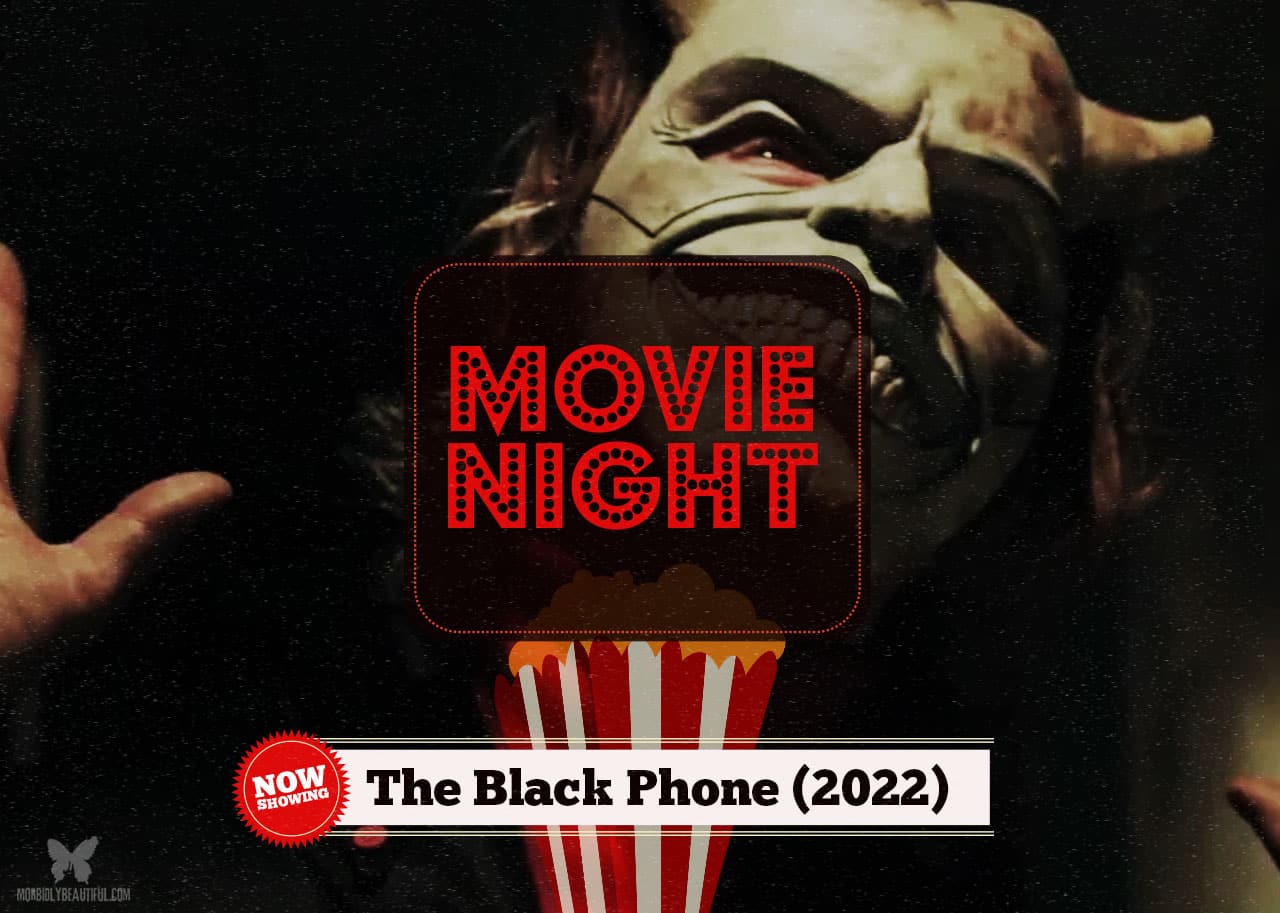
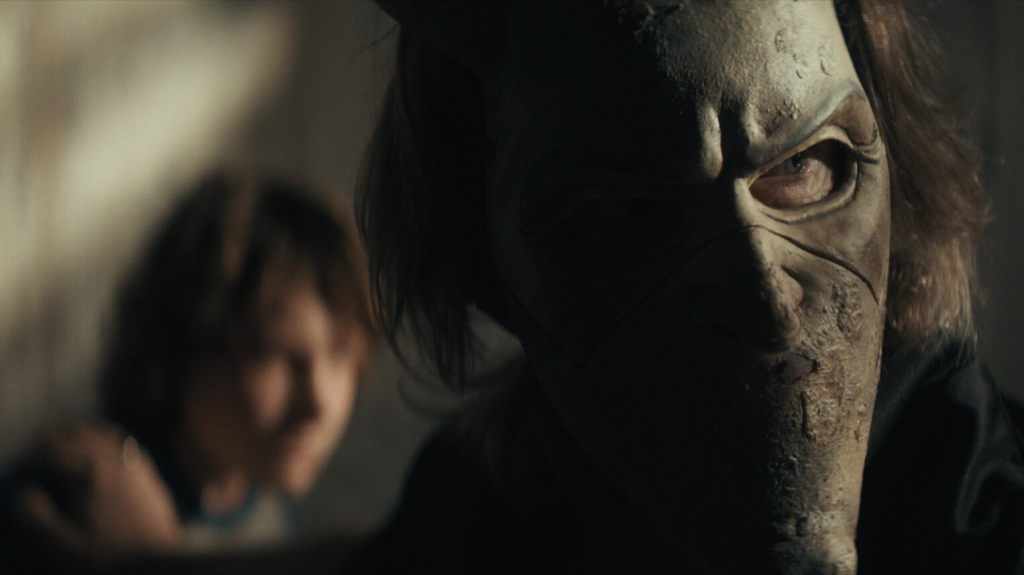
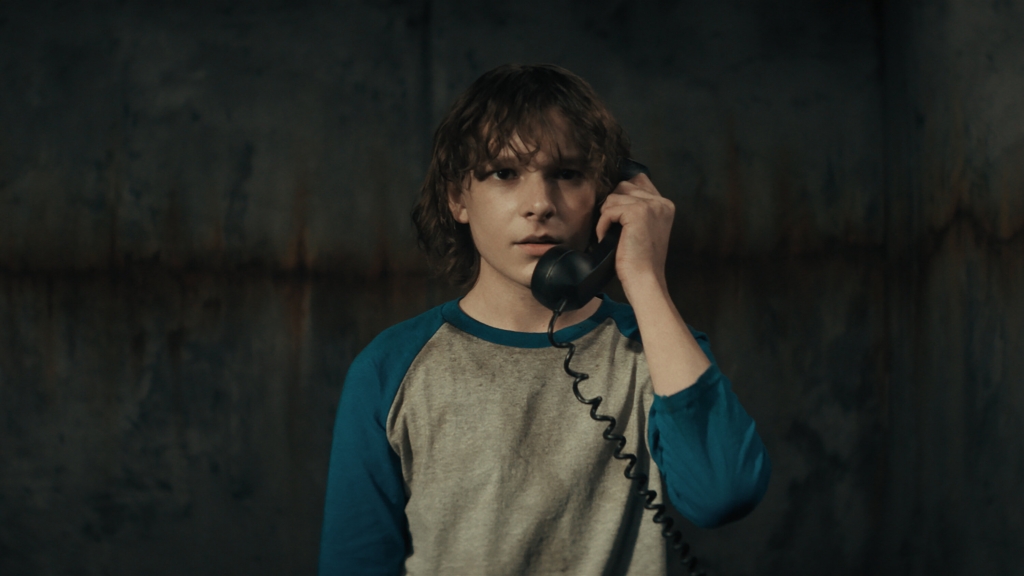
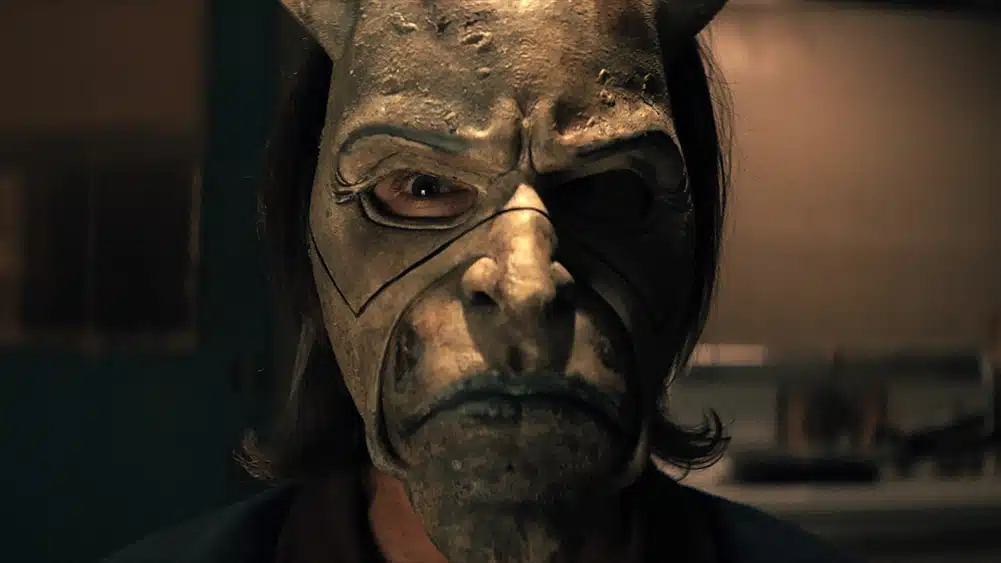
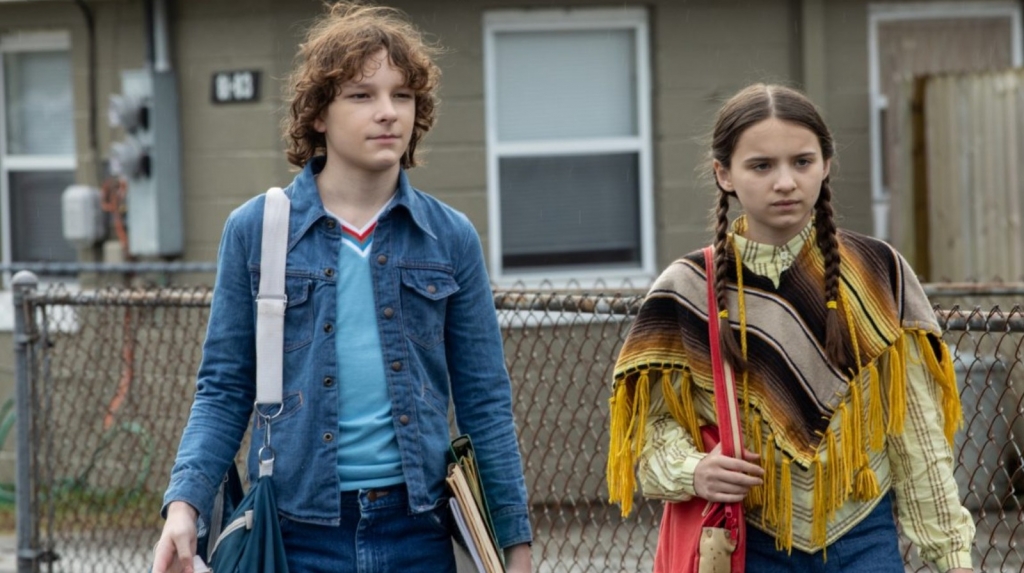
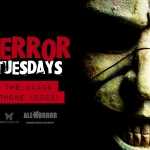
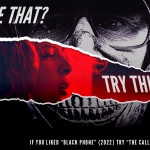



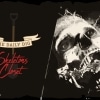



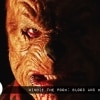
Follow Us!